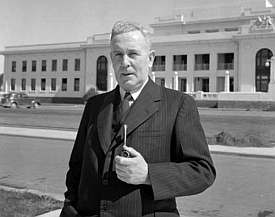Wangari Maathai, the Kenyan environmental and political activist gave this Nobel Lecture in Oslo, Norway after winning the Nobel Peace Prize in 2004.
The video is an edited version of her speech. We recommend you read the full transcript which can be found here on the SoftKenya website with other famous speeches.
Wangari Maathai:
Majesties; Your Royal Highnesses; Honourable Members of the Norwegian Nobel Committee; Excellencies; Ladies and Gentlemen
I stand before you and the world humbled by this recognition and uplifted by the honour of being the 2004 Nobel Peace Laureate.
As the first African woman to receive this prize, I accept it on behalf of the people of Kenya and Africa, and indeed the whole world.
So, together, we have planted over 30 million trees that provide fuel, food, shelter, and income to support their children’s education and household needs. The activity also creates employment and improves soils and watersheds. Through their involvement, women gain some degree of power over their lives, especially their social and economic position and relevance in the family. This work continues.
Initially, the work was difficult because historically our people have been persuaded to believe that because they are poor, they lack not only capital, but also knowledge and skills to address their challenges. Instead they are conditioned to believe that their solutions to their problems must come from ‘outside’.
Although initially the Green Belt Movement’s tree planting activities did not address issues of democracy and peace, it soon became clear that responsible governance of the environment was impossible without democratic space. Therefore, the tree became a symbol for the democratic struggle in Kenya. Citizens were mobilised to challenge widespread abuses of power, corruption and environmental mismanagement. In Nairobi ‘s Uhuru Park, at Freedom Corner, and in many parts of the country, trees of peace were planted to demand the release of prisoners of conscience and a peaceful transition to democracy.
Through the Green Belt Movement, thousands of ordinary citizens were mobilized and empowered to take action and effect change. They learned to overcome fear and a sense of helplessness and moved to defend democratic rights.
In time, the tree also became a symbol of peace and conflict resolution, especially during the ethnic conflicts in Kenya when the Green Belt Movement used peace trees to reconcile disputing communities. During the ongoing re-writing of the constitution, similar trees of peace were planted in many parts of the country to promote a culture of peace. Using trees as a symbol of peace is in keeping with a widespread African tradition. For example in my own community, the man, the elders carried a staff from a tree called thigi. Whenever there were disputing sides, that staff was placed between them, and as soon as the elders placed that thege that staff between them, they stepped back, stopped fighting and went to seek the reconciliation. Many African communities have this heritage and tradition.
Such practises are part of an extensive cultural heritage, which contributes both to the conservation of habitats and to cultures of peace. With the destruction of these cultures and the introduction of new values, local biodiversity is no longer valued and protected and as a result, it is quickly degraded and disappears. For this reason, the Green Belt Movement explores the concept of cultural biodiversity, especially with respect to indigenous trees and medicinal plants.
As we progressively understood the causes of environmental degradation, we saw the need for good governance. Indeed, the state of any county’s environment is a reflection of the kind of governance in place, and without good governance there can be no peace. Many countries, which have poor governance systems, are also likely to have conflicts and poor laws protecting the environment.
In the year 2002, the courage, resilience, patience and commitment of members of the Green Belt Movement, other civil society organizations, and the Kenyan public culminated in the peaceful transition to a democratic government and laid the foundation for a more stable society.
Excellencies, friends, ladies and gentlemen, it is 30 years since we started this work. Activities that devastate the environment and societies continue unabated. Today we are faced with a challenge that calls for a shift in our thinking, so that humanity stops threatening its life-support system. We are called to assist the Earth to heal her wounds and in the process heal our own – indeed, to embrace the whole creation in all its diversity, beauty and wonder. This will happen if we see the need to revive our sense of belonging to a larger family of life, with which we have shared our evolutionary process.
As I conclude I reflect on my childhood experience when I would visit a stream next to our home to fetch water for my mother. I would drink water straight from the stream. Playing among the arrowroot leaves I tried in vain to pick up the strands of frogs’ eggs, believing they were beads. But every time I put my little fingers under them they would break. Later, I saw thousands of tadpoles: black, energetic and wriggling through the clear water against the background of the brown earth. This is the world I inherited from my parents.
Today, over 50 years later, the stream has dried up, women walk long distances for water, which is not always clean, and children will never know what they have lost. The challenge is to restore the home of the tadpoles and give back to our children a world of beauty and wonder.
Thank you very much.

